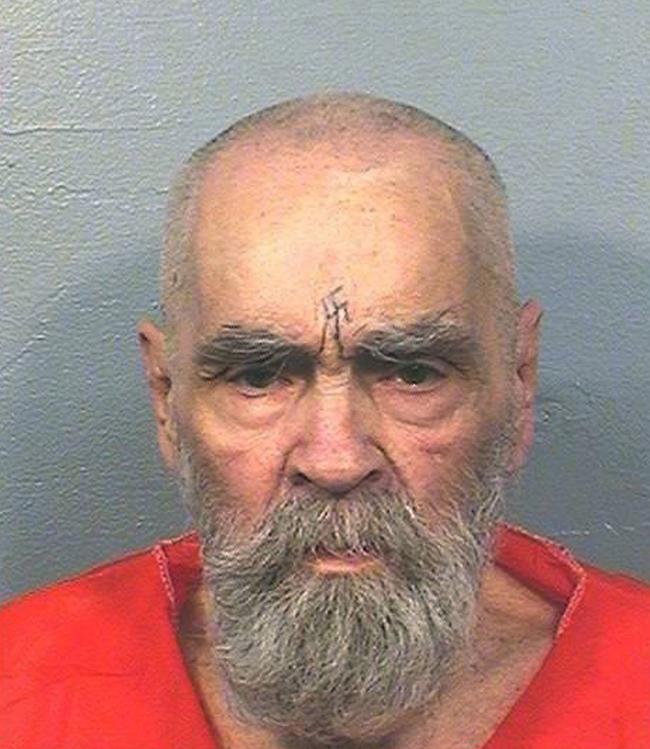
CHARLES Manson had nightmares of people screaming, John Wayne Gacy wanted to be liked and the Broomstick Killer was the most frightening murderer to meet, according to the UK’s own ‘mind-hunter’.
From his beginnings as a beat bobby in Leeds, Paul Harrison’s life took a remarkable turn when he asked the FBI for help in bringing about a change to policing in the UK, a move that would see him go on to rub shoulders with some of the world’s worst criminals.
He believed – and still does – that nobody is born a criminal, that circumstances conspire to lead people onto a path to crime, be that the need to put food on the table or the overriding sense of isolation and inadequacy that apparently characterises many of the world’s most notorious killers.
Mr Harrison contacted the FBI after being "laughed out of a conference” in the early 1980s for voicing ideas that would shape criminal profiling as we know it today.
In a quest to understand serial offenders, he sent them files on shoplifters stealing from Boots - they sent back Ted Bundy’s.
“I wasn’t expecting it,” he says, “but it’s all criminality, maybe different levels of criminality but serial killers start with low level crime.”
This early exchange sparked a connection that would see Mr Harrison become one of the first British officers to work at the FBI’s Behavioural Science Unit in Quantico, Virginia.
During his time there, he met a veritable who’s who of the world’s worst murderers, monsters and paedophiles, conducting interviews with the likes of Bundy, Charles Manson, John Wayne Gacy and Aileen Wuornos.

KILLER CRIMINALS: Charles Manson had nightmares
Mr Harrison also worked on notorious cases in the UK but says the Official Secrets Act forbids him from spilling the beans – “If I tell you that, I’ll end up having a knock on my door from men in black suits”, he laughs.
“But, if there’s one thing all these people have in common, it’s that they're boring.
“You read the papers and see police files so when you go to meet someone like Gacy or Bundy, you expect someone with charisma, but they’re really boring people who are insecure, manipulative and desperate to be liked – nobody likes to be hated.
“Nearly all of them were trying to be seen as victims, they’d refuse to admit what they’d done, say it was someone else or blame society and the establishment.
“I wasn’t talking to them about their crimes but about their childhood, trying to understand where it all went wrong.
“Where you find similarities, these are flags that can determine what happened and if you can catch that kind of thing in childhood, interventions can be put in place to protect future generations.
“These people are created, nobody is born evil.”
Only one killer frightened him in the flesh – Broomstick Killer Kenneth McDuff, a “very angry man” thought to have murdered up to 14 people.
“Sometimes if these people don’t get the right replies or you don’t nod in the right places, they react. He thumped the desk, left a huge dent in it, and it was metal – I knew I had to get out, it was fight or flight.”

TED BUNDY: 'Serial killers were all boring people'
Mr Harrison appears repulsed by the cult of criminality, by the market for murder memorabilia, the prison guards who sell selfies with serial killers and the status their horrific crimes hold among their prison peers.
He harbours no sympathy for the killers he met – though he does reserve some pity for Aileen Wuornos, believing her criminal career was created through systematic failings.
“I had to put what they’d done out of my mind but as a human, that’s very hard to do, and sometimes their love of power and control would mean they’d suddenly start talking about the murders, trying to unnerve you.
“Some liked talking about their crimes, they’d get excited and that was the most shocking thing, seeing them get a real buzz from it.
“They’d almost be salivating from the excitement of recounting their crimes - you’re hearing terrible things done to children and vulnerable people and they’re taking pleasure from it.”
Charles Manson was the only one of Mr Harrison’s interviewees that he believes expressed some kind of guilt – “though he’d never have admitted it”.
None of the others showed remorse – “if they do, it’s an admission of guilt and they’ll be seen as weak within the prison system”.
However, Manson would wake throughout the night, saying he could hear screams and begging for medication to stop the nightmares.
“They wouldn’t give him it, they thought it was about him wanting power and control but if he’s waking up hearing screams in the dead of night, that’s not the other prisoners, that’s guilt, even if he never confessed to it.”
Although his policing career is now over, the retired detective cannot turn his instincts off and still takes a keen interest in the field he left behind.
When asked if he believes there are any serial killers currently active in the UK, his mind turns to a series of deaths in Manchester.
“I’ll often see something that will make me think it is really suspicious but I don’t have any access to police files.
“There is a case in Manchester where people are talking about there being a ‘canal pusher’ but without seeing all of the evidence, I can’t judge.
“What I do believe is that there are killers in prison who have killed more people than they are incarcerated for. I think Peter Sutcliffe killed many more people than has come to light.”
Mr Harrison gave an insight into his work ahead of an event taking place in Middlesbrough on Sunday, where he will share anecdotes drawn from almost four decades of battling to understand the criminal psyche – while always, he stresses, keeping victims at the forefront of his mind.
“I always want to bring it back to the victims, not those who died but those who were left behind and who suffer on a daily basis and don’t get a voice.
“They get up every morning and think of their loved one, that a serial killer murdered and they will never get closure – more must be done to support them.”
- Paul Harrison will give a talk entitled Interviews with Serial Killers at the Longlands Club in Middlesbrough at 7pm on Sunday. For tickets, visit skiddle.com or call 01642 272006.
- For more information about Mr Harrison, visit paulharrisonbooks.co.uk.



Comments: Our rules
We want our comments to be a lively and valuable part of our community - a place where readers can debate and engage with the most important local issues. The ability to comment on our stories is a privilege, not a right, however, and that privilege may be withdrawn if it is abused or misused.
Please report any comments that break our rules.
Read the rules here